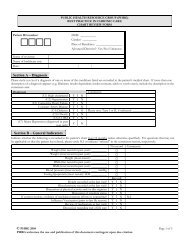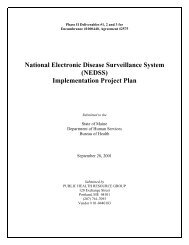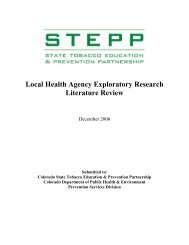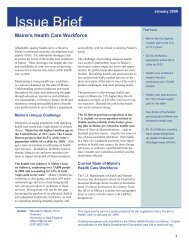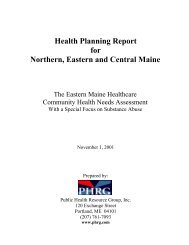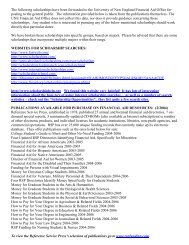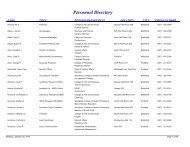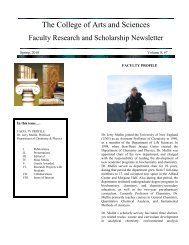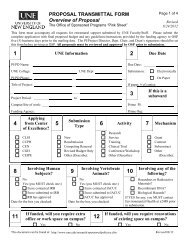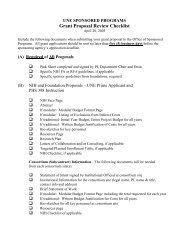Acute Flaccid Paralysis Accompanying West Nile Meningitis Ahmed ...
Acute Flaccid Paralysis Accompanying West Nile Meningitis Ahmed ...
Acute Flaccid Paralysis Accompanying West Nile Meningitis Ahmed ...
Create successful ePaper yourself
Turn your PDF publications into a flip-book with our unique Google optimized e-Paper software.
Using NSQIP and Zynxhealth to Build and Assess a Fast Track Colon<br />
Surgery Program<br />
Gary, M DO; Carr, S, RN; <strong>West</strong>, E MA; Joseph, C MPH; Tutela, S BSN;<br />
Counihan, T MD<br />
Berkshire Medical Center, Department of Surgery Pittsfield, MA<br />
Introduction: A fast track colon surgery program was initiated in July 2009 at our<br />
institution using an evidence based decision support system. Quality<br />
improvement efforts required the measurement of results of our new program.<br />
Methods: Our program was built by a multidisciplinary team using clinical<br />
decision support and standardized order sets from Zynxhealth. The National<br />
Surgical Quality Improvement Program (NSQIP) database was used to identify<br />
patients undergoing elective colon surgery prior to the fast track program<br />
(8/1/2006-1/31/2009) and following implementation of the program (6/1/2009-<br />
9/30/2012). Data were compared using two sample % defective and standard<br />
deviation tests.<br />
Results: There were 69 patients available for analysis undergoing traditional<br />
care and 157 patients underwent surgery using the fast track program. The mean<br />
age was 63.6 (63% female) in the fast track group and 66.1 (55% female) in the<br />
traditional group. The patients in both groups were similar in terms of race,<br />
ethnicity, body mass index, co-morbid conditions and ASA status. There was one<br />
death in the traditional group. Common complications and length of stay are<br />
shown in Table 1.<br />
Table 1. Outcomes for fast track versus traditional colectomy<br />
Overall<br />
complications*<br />
p=0.036<br />
Respiratory<br />
complications*<br />
p=0.004<br />
Urinary tract<br />
complications*<br />
p=0.037<br />
Wound<br />
occurrences*<br />
p=0.85<br />
Length of<br />
stay†<br />
p=0.030<br />
Tradition 26 (37.6%) 11 (15.9%) 7 (10%) 12(17.4%) 8.9<br />
al (n=69)<br />
Fast 37 (23.5%) 6 (3.8%) 4 (2.5%) 26 (16.3%) 5.4<br />
track<br />
(n=157)<br />
* using two sample % defective test<br />
† using two sample standard deviation test<br />
Conclusion: Implementation of our fast track colon surgery program resulted in<br />
a reduction in length of stay, urinary tract complications, respiratory<br />
complications and overall postoperative occurrences. NSQIP provided accurate<br />
data to assess the results of our program. The combination of a clinical decision<br />
support system (Zynxhealth) and NSQIP allowed accurate assessment of rapid<br />
improvement in colon surgery patients at our institution.





